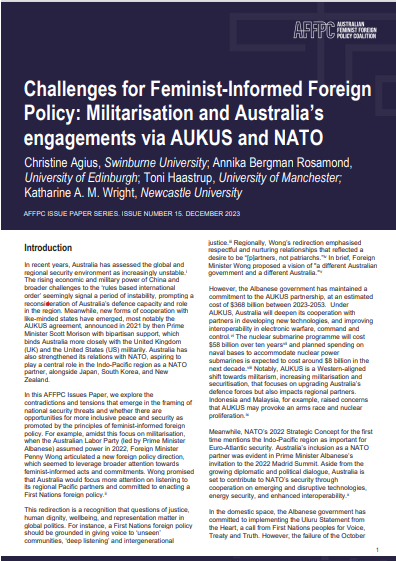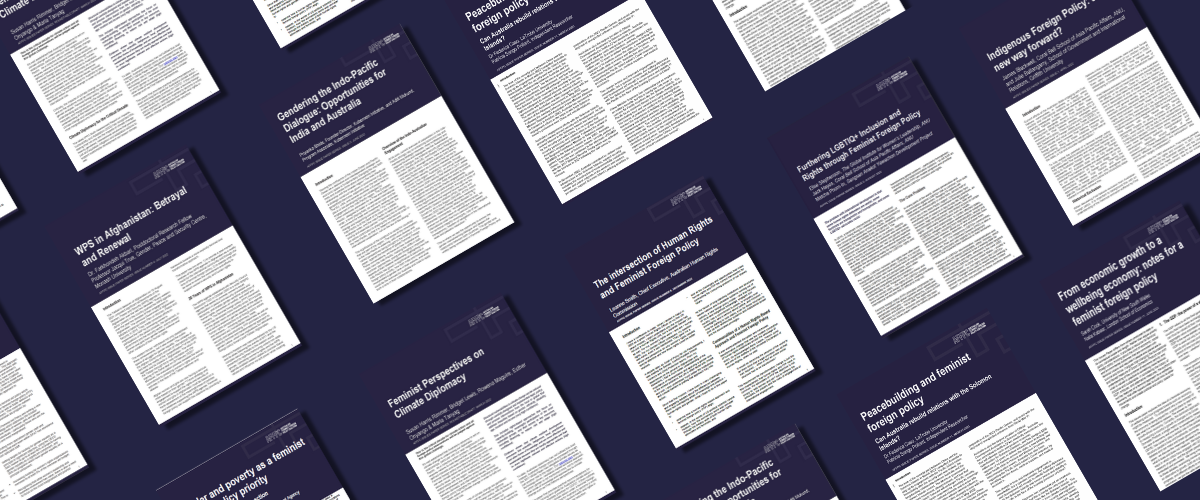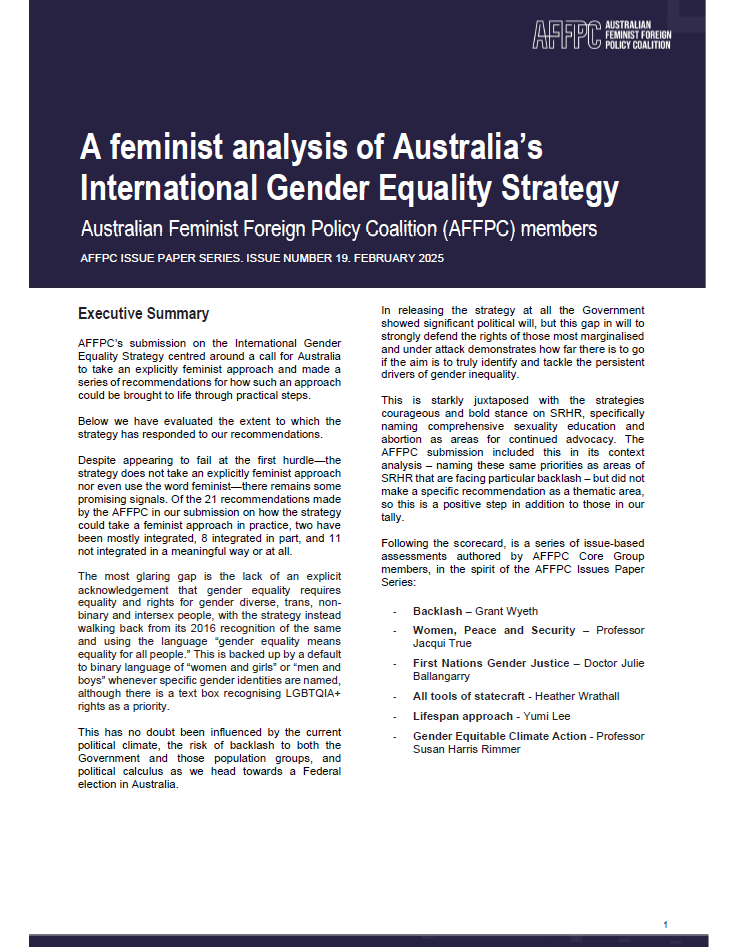Challenges for Feminist-Informed Foreign Policy: Militarisation and Australia’s engagements via AUKUS and NATO
In recent years, Australia has assessed the global and regional security environment as increasingly unstable. The rising economic and military power of China and broader challenges to the ‘rules based international order’ seemingly signal a period of instability, prompting a reconsideration of Australia’s defence capacity and role in the region. Meanwhile, new forms of cooperation with like-minded states have emerged, most notably the AUKUS agreement, announced in 2021 by then Prime Minister Scott Morison with bipartisan support, which binds Australia more closely with the United Kingdom (UK) and the United States (US) militarily. Australia has also strengthened its relations with NATO, aspiring to play a central role in the Indo-Pacific region as a NATO partner, alongside Japan, South Korea, and New Zealand.
In this AFFPC Issues Paper, we explore the contradictions and tensions that emerge in the framing of national security threats and whether there are opportunities for more inclusive peace and security as promoted by the principles of feminist-informed foreign policy. For example, amidst this focus on militarisation, when the Australian Labor Party (led by Prime Minister Albanese) assumed power in 2022, Foreign Minister Penny Wong articulated a new foreign policy direction, which seemed to leverage broader attention towards feminist-informed acts and commitments. Wong promised that Australia would focus more attention on listening to its regional Pacific partners and committed to enacting a First Nations foreign policy.




